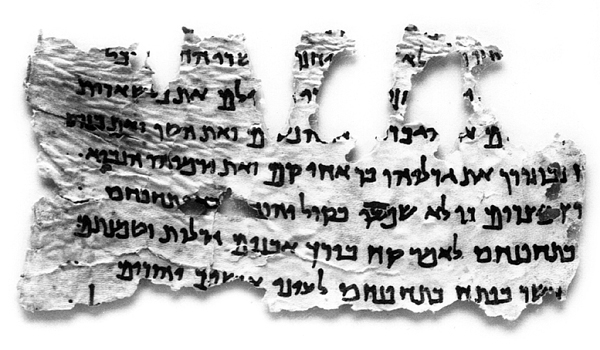Image Details

ABMC/Israel Antiquities Authority
The fragment shown here (compare with image of 4QJerb fragment), known as 4QJerd, includes portions of Jeremiah 43:2–10, which recounts how a group of Judahites fled to Egypt in the face of the Babylonian attack. It, too, is closer to the edition of Jeremiah preserved in the Greek Septuagint. In the Hebrew version underlying the Septuagint, individuals are generally introduced by their full names and titles and are subsequently referred to by a shortened name. For example, the Septuagint introduces a person named “Jonathan son of Kareah” in Jeremiah 40:8 but subsequently refers to him as simply “Jonathan.” This fragment includes two of these secondary references to “Jonathan” (Jeremiah 43:4, 5). In the same verses in Edition II (the Masoretic Text), however, “Jonathan son of Kareah” is consistently referred to by his patronymic name. These full names are one of the hallmarks of Edition II.
Until these two fragmentary scrolls were discovered in Cave 4 at Qumran, Edition I was known only from the Septuagint, a second-century B.C.E. Greek translation of the Hebrew Bible. However minute, these fragments confirm the relative faithfulness of the Greek translators and serve as a guide for scholars as they attempt to translate the Greek back into the original Hebrew.
